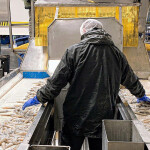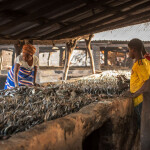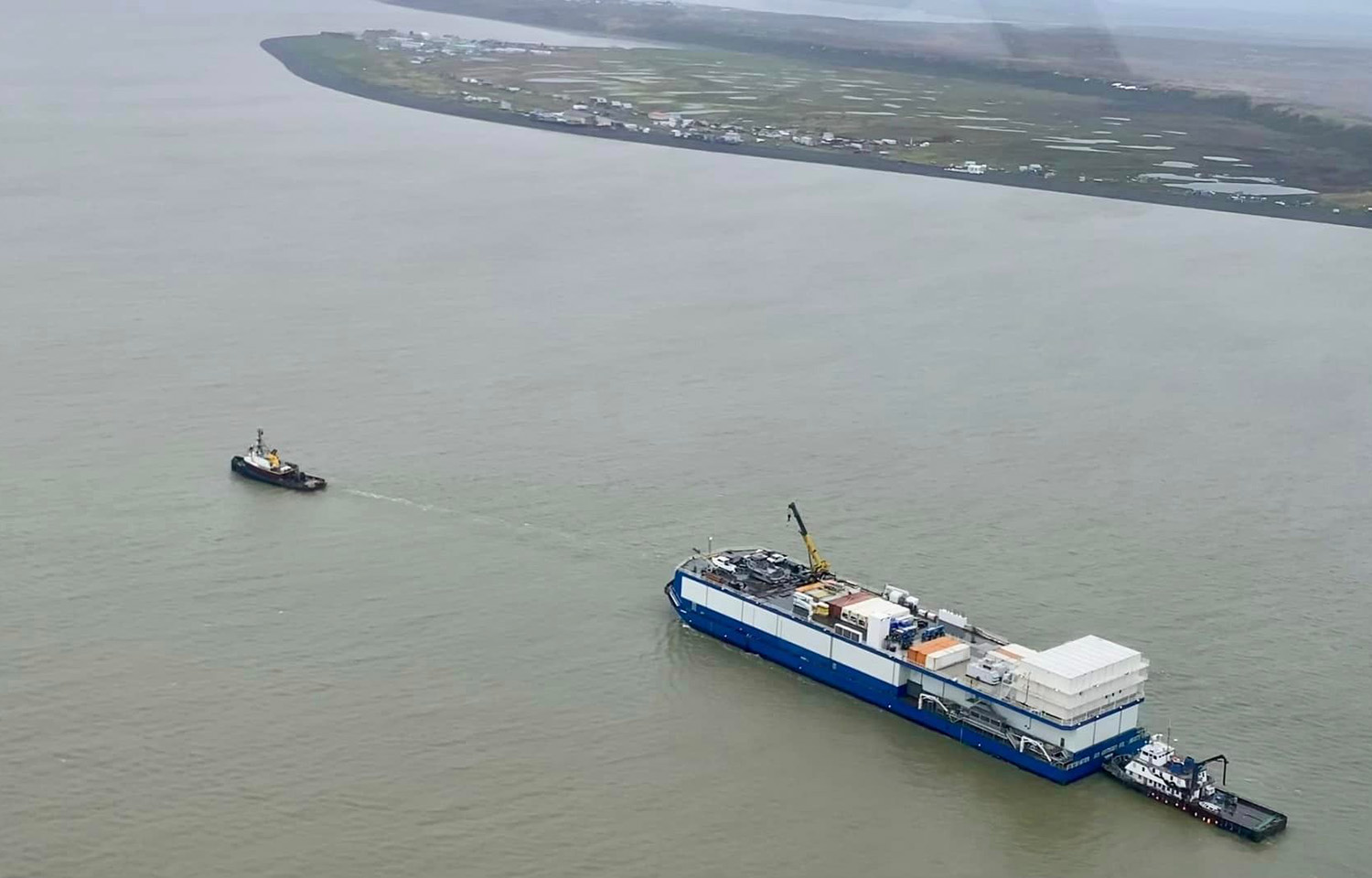An electrical fire has forced the Hannah, Northline Seafoods’ new floating processor, to reduce its capacity, just as the sockeye salmon season is picking up in Bristol Bay, Alaska, U.S.A.
The Sitka, Alaska, U.S.A.-based company, which has the goal of revolutionizing Alaska’s salmon-processing sector, announced the Hannah experienced an electrical fire under one of its three spiral freezers on 30 June.
“The team is pursuing repairs; however, the incident has caused a significant loss of freeze production capacity. The manufacturer of the spiral freezer is on board, evaluating repairs,” the company said in a 2 July statement. “Northline is operating and freezing fish at a reduced capacity. Repairs are underway, but the repair timeline is unknown at this time.”
The Hannah arrived in Dillingham, Alaska, in early June in advance of the big salmon runs in Bristol Bay. The company hoped to perform deep-freezing on whole salmon on site in Bristol Bay and then haul the fish back to its base in Bellingham, Washington, U.S.A., at the end of the season.
The vessel's ultra-low-temperature refrigeration system introduced a new production model for Alaskan salmon, quickly freezing whole, round fish to maintain optimal freshness and quality. Northline Seafoods CEO Ben Blakey previously told SeafoodSource the Hannah has a capacity of 14 million pounds and can process up to 50,000 pounds of salmon per day.
“Our plan is to keep the pace of reprocessing more controlled, completing it throughout the course of the year and aiming for 50,000 pounds a day instead of trying to fillet a million pounds a day. That way, it’s far easier to control our costs and our timing and improve our yields so we end up with a higher percentage of usable product that’s better created and easier to meet the specs the customer has asked for,” Blakey said. “The idea is to cut a lot of costs and make it far more efficient to operate than the existing supply chain coming out of Alaska.”
Northline said it had notified fishermen who had contracted to offload their fish to the Hannah that the barge is operating at reduced capacity.
“In order to honor their commitment to transparency, the Northline Seafoods fleet was notified promptly of the event, and Northline will continue open communication,” it said. “Northline Seafoods will continue to provide services and support the fleet and fishermen throughout the rest of the season while continuing to buy and freeze fish at a reduced capacity.”
Northline Seafoods CEO Ben Blakey said the company plans to continue to operate the Hannah in Alaska this season – to the extent it is able.
“This incident was certainly a setback, but thankfully, the damage was limited, no one was injured, and our freezing operations will continue throughout the salmon season,” Blakey said.








